After 75 days and nights with 31 sessions and many bilateral and multilateral meetings and contacts on the sidelines of the conference, on July 21, 1954, the Geneva Conference ended, adopting a Joint Declaration.
Major General Ta Quang Buu, Deputy Minister of National Defense, representing the General Command of the Vietnam People's Army and Major General Denteil, representing the General Command of the French Union Army in Indochina signed the Agreement on the cessation of hostilities in Vietnam.
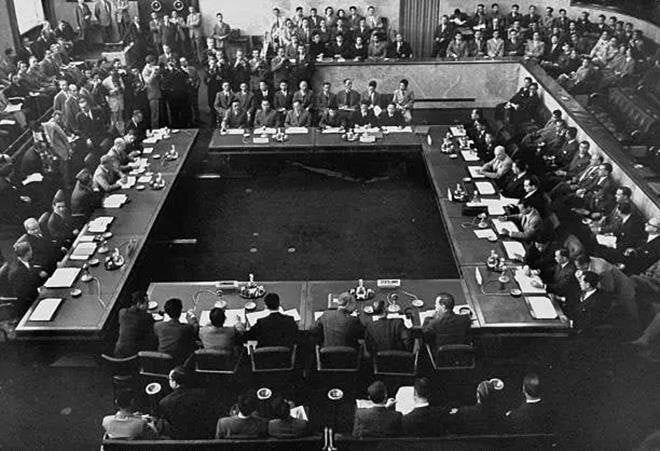
The Geneva Conference (Switzerland) in 1954 discussed restoring peace in Indochina. (Photo: Archive)
The Geneva Agreement was a great victory for the Vietnamese revolution.
The signing of the Geneva Agreement was a great victory for the Vietnamese revolution. The Agreement forced the French colonialists to end the war and recognize the basic national rights of the Vietnamese people.
That victory originated from the wise leadership of the Party Central Committee and the Central Military Commission, headed by the great President Ho Chi Minh; from the tradition of patriotism, indomitable will, ingenuity and bravery of our entire people and army, from the tradition of peace and harmony of Vietnamese diplomacy and was the result of the combined strength of political struggle, military struggle and diplomatic struggle, making the best use of victories on the battlefield to create strength at the Conference table.
The success of the Conference also affirmed the role and left a strong mark of the armed forces, with the core being the heroic Vietnam People's Army.
Colonel, Associate Professor, Dr. Tran Ngoc Long, former Deputy Director of the Vietnam Military History Institute, commented that the Geneva Conference and the Geneva Agreement gave Vietnam a lot of experience in the negotiation arena; at the same time, equipped the Vietnamese army and people with what was most necessary to gain glorious victory before the thorny path, confronting the new colonial war of aggression of the US Empire.
Sharing the same view, Colonel, Associate Professor, Dr. Nguyen Xuan Tu, former Editor-in-Chief of the Military Political Theory Education Journal of the Academy of Politics - Ministry of National Defense, assessed that the signing of the Geneva Agreement was a manifestation of the success of the revolutionary line, the line of the People's War "All people, comprehensive, long-term, self-reliant" initiated and led by the Party and President Ho Chi Minh.
In which, we have creatively implemented the correct foreign policy of "making more friends, reducing enemies" and "knowing how to win step by step" of the Party and President Ho Chi Minh.
It was the all-people, all-round strength in the resistance war against French colonialism of the Vietnamese people, culminating in the victorious Dien Bien Phu Campaign leading to the signing of the Geneva Agreement, that General Navarre, Commander-in-Chief of the French expeditionary army in Indochina in 1953-1954, admitted: " The French expeditionary army not only had to fight a regular army but also had to confront an entire nation ."
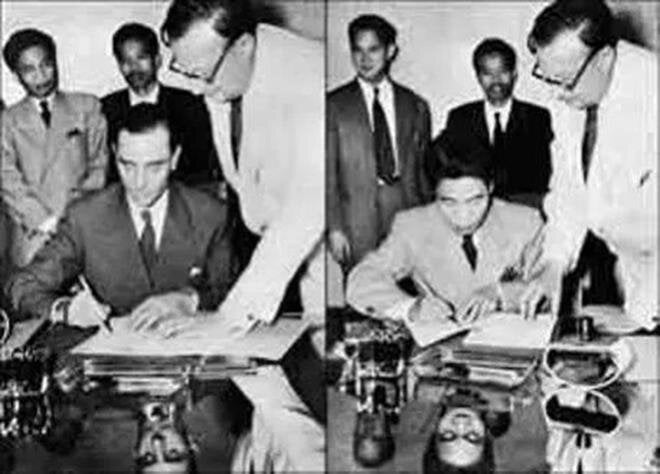
French General (left) and Deputy Minister of Defense Ta Quang Buu signed the Geneva Agreement in July 1954. (Photo: Archive)
The signing of the Geneva Agreement was an important milestone in the history of Vietnamese diplomacy when it first stepped onto the multilateral negotiation stage with the participation of major powers, to discuss issues related to the basic rights of its own people in the context of the world situation and international relations with many complicated developments, the major countries participating in the conference all pursued different goals and interests...
The signing helped Vietnam gain victory, bringing great and legitimate benefits to the nation. As President Ho Chi Minh affirmed: "The Geneva Conference has ended. Our diplomacy has achieved great victory...". At this time, it was this achievement on the diplomatic front that brought new position and power to our country in the international arena.
Besides, the signing of the Geneva Agreement - the result of the negotiation process at the Geneva Conference - also brought valuable historical experiences to the Vietnamese revolution, especially the diplomatic struggle at the Paris Conference later (May 13, 1968 - January 27, 1973).
"We have more experience, only negotiating directly with the US, not through any intermediary country; combining military and political struggles with diplomatic struggles, creating a situation of "both fighting and negotiating", said Colonel, Associate Professor , Dr. Nguyen Xuan Tu.
Consistent with the "4 no's" defense policy
70 years have passed, the negotiation, signing and implementation of the Geneva Agreement is a valuable handbook on Vietnam's foreign policy and diplomacy with many valuable lessons on principles, methods and diplomatic art, bearing the strong identity of Vietnamese diplomacy in the Ho Chi Minh era.
Besides, the Geneva Agreement is also a valuable lesson and experience for foreign defense and security activities in the current situation.
In the current complex, rapid and unpredictable global and regional situation, Senior Lieutenant General, Associate Professor, Dr. Hoang Xuan Chien, member of the Party Central Committee, member of the Central Military Commission, Deputy Minister of National Defense, said that the study and creative application of valuable lessons and experiences of the Geneva Conference on upholding the spirit of independence, self-reliance, persistently protecting national and ethnic interests; closely combining politics, military and diplomacy; promoting internal strength, enhancing the country's overall strength to create a solid foundation for diplomatic activities still holds value in both theory and practice.
"This is also an important basis for developing the Party and State's foreign policy and defense diplomacy, contributing to successfully fulfilling the task of building and firmly protecting the socialist Vietnamese Fatherland in the new situation," Senior Lieutenant General, Associate Professor, Dr. Hoang Xuan Chien emphasized.
According to Colonel, Associate Professor, Dr. Nguyen Xuan Tu, on the basis of firmly maintaining the Party's foreign policy, defense and security diplomacy must continue to inherit and promote the value of the Geneva Agreement and apply diplomatic struggle experience from this Conference to improve the effectiveness of defense and security diplomacy in the new situation.
Accordingly, foreign defense and security activities must be continuously promoted in the direction of "making more friends and fewer enemies". Deeply and widely develop both the scope and level of cooperation with countries, international organizations and institutions, contributing to gradually integrating Vietnam's defense and security into the world.
Actively innovate the content and form of defense and security relations and cooperation to expand in many fields, with many partners, including breakthrough contents, effectively contributing to socio-economic development, maintaining national security, firmly protecting the independence, sovereignty, unity and territorial integrity of the Fatherland, enhancing the prestige and position of the country, the army and the police in the region and the world.
Colonel, Associate Professor, Dr. Nguyen Xuan Tu said that defense and security diplomacy today not only strengthens cooperation, but also focuses on the struggle and closely combines cooperation and struggle in all aspects and fields. With disputes and conflicts, it is necessary to fight wisely, clearly identify priorities in relations with neighboring countries, regions, major countries, traditional friends and other countries; bring defense and security diplomacy into depth, with practical effectiveness.
Regarding defense diplomacy, it is necessary to consistently implement the "4 no's" defense policy. That is, not participating in military alliances; not associating with one country to fight another; not allowing foreign countries to set up military bases or use territory to fight against other countries; not using force or threatening to use force in international relations.
In addition, it is necessary to actively and proactively implement commitments according to regional and international cooperation mechanisms on participating in preventing and combating non-traditional security risks and maintaining peace, enhancing Vietnam's position in the international arena; participating in United Nations peacekeeping activities; coordinating search and rescue, conducting joint patrols on land and sea borders with a number of countries...
In that process, we must continue to focus on successfully implementing Resolution No. 806-NQ/QUTW, dated December 31, 2013 of the Central Military Commission "On international integration and defense diplomacy to 2020 and the following years".
Regarding security diplomacy, it is necessary to continue implementing the foreign security strategy and steps in relations with law enforcement agencies of other countries and international organizations, building a peaceful environment to build, protect and develop the country; proactively participate in international cooperation forums on crime prevention and control; build and implement security dialogue mechanisms well; seize opportunities, choose the level and extent of participation and initiate regional and international connections suitable to Vietnam's interests.
Seven decades have passed, but the historical significance and lessons learned from the Geneva Agreement remain valuable. "In the new situation, we need to continue to inherit and promote the values of the Geneva Agreement in foreign affairs on defense and security, contributing to maintaining a peaceful environment, political stability, and national security to develop the country in a socialist direction," emphasized Colonel, Associate Professor, Dr. Nguyen Xuan Tu.
Source


![[Photo] General Secretary To Lam and international leaders attend the parade celebrating the 80th anniversary of the victory over fascism in Russia](https://vphoto.vietnam.vn/thumb/1200x675/vietnam/resource/IMAGE/2025/5/9/4ec77ed7629a45c79d6e8aa952f20dd3)
![[Photo] Russian military power on display at parade celebrating 80 years of victory over fascism](https://vphoto.vietnam.vn/thumb/1200x675/vietnam/resource/IMAGE/2025/5/9/ce054c3a71b74b1da3be310973aebcfd)
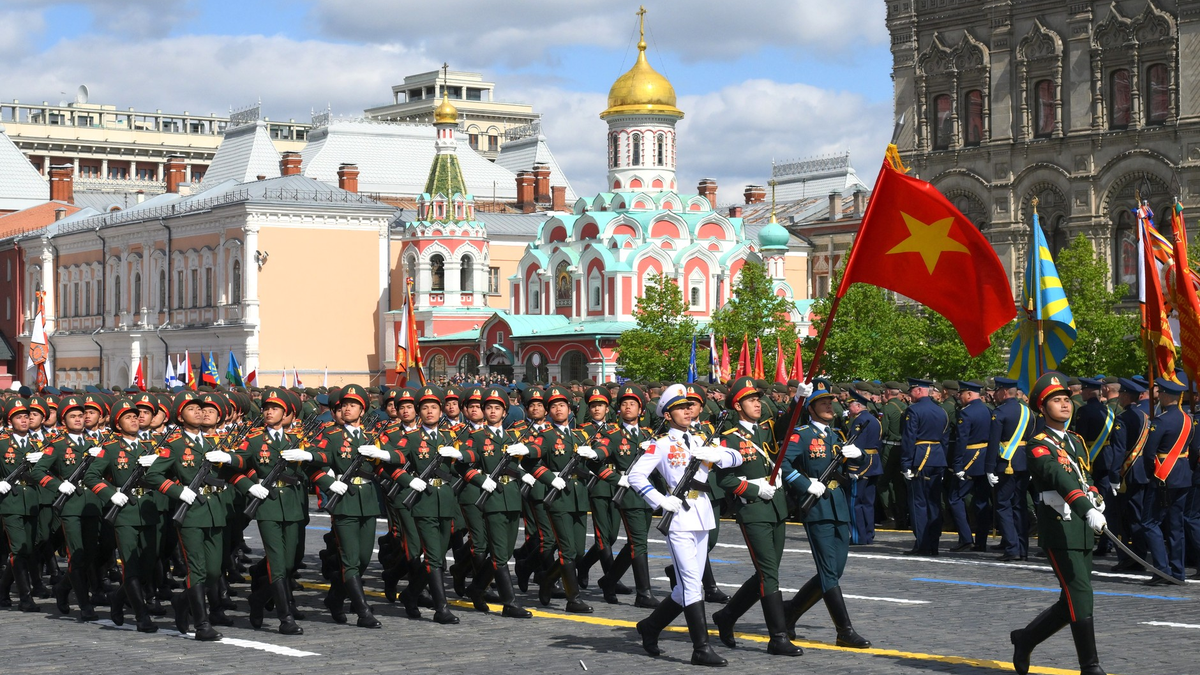
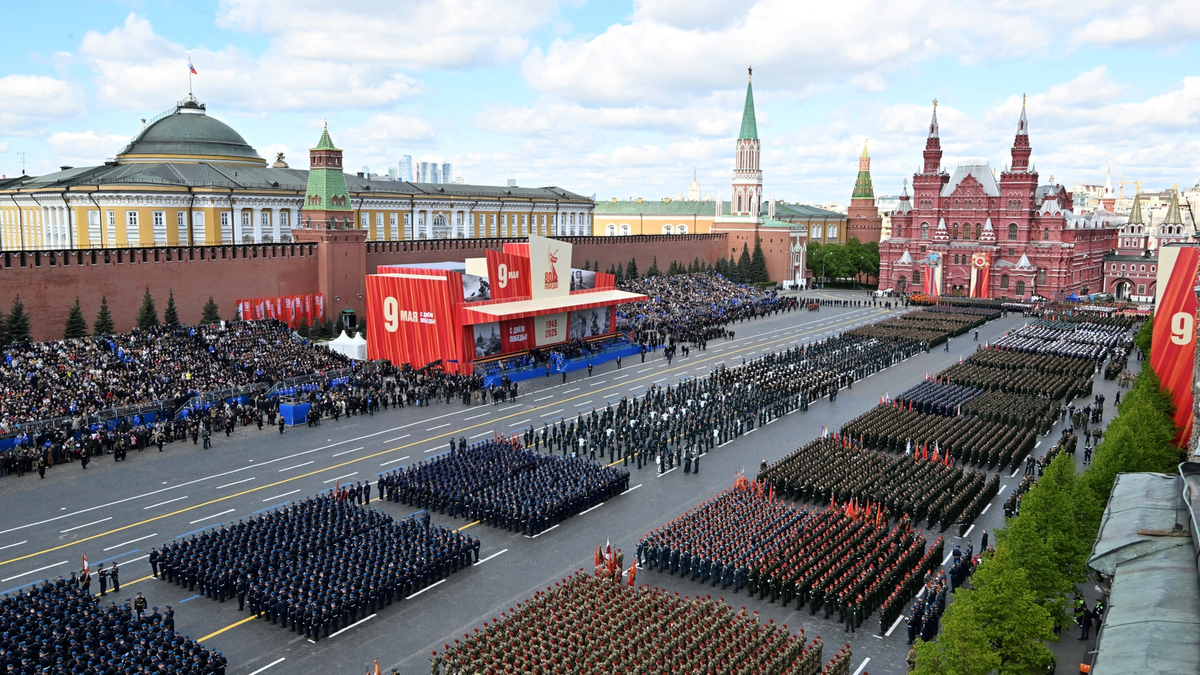
![[Photo] Prime Minister Pham Minh Chinh chairs a special Government meeting on the arrangement of administrative units at all levels.](https://vphoto.vietnam.vn/thumb/1200x675/vietnam/resource/IMAGE/2025/5/9/6a22e6a997424870abfb39817bb9bb6c)







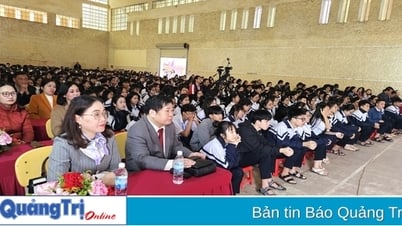


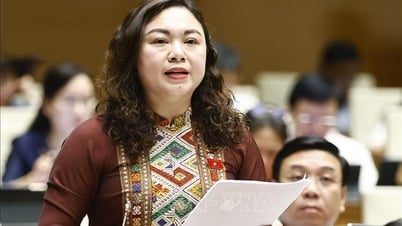
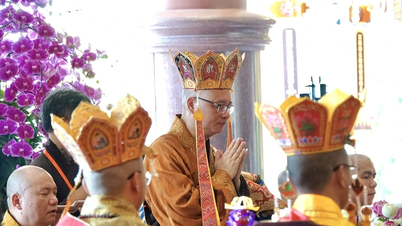
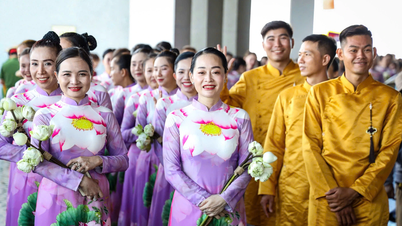
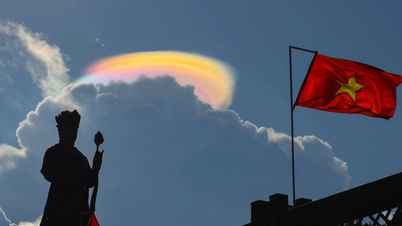
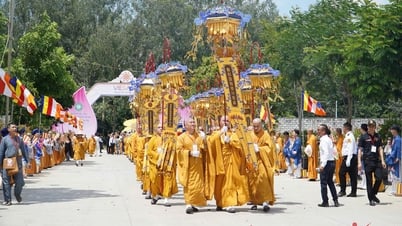
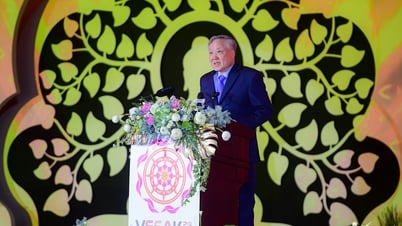




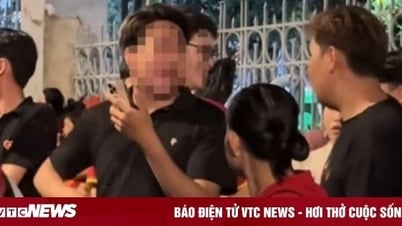

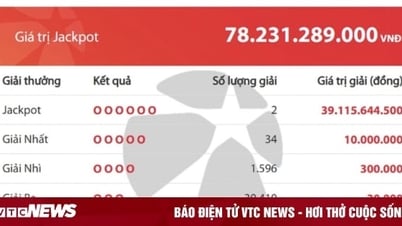

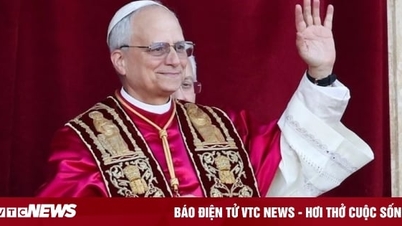

![[Photo] Magical moment of double five-colored clouds on Ba Den mountain on the day of the Buddha's relic procession](https://vphoto.vietnam.vn/thumb/1200x675/vietnam/resource/IMAGE/2025/5/9/7a710556965c413397f9e38ac9708d2f)















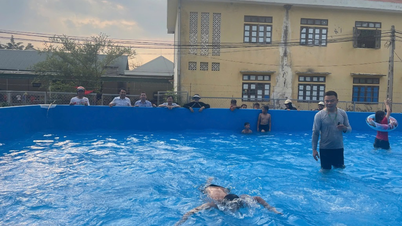












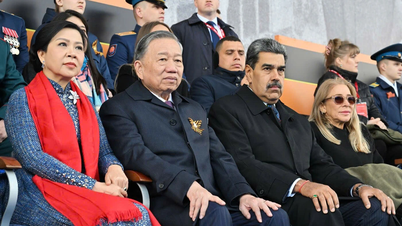






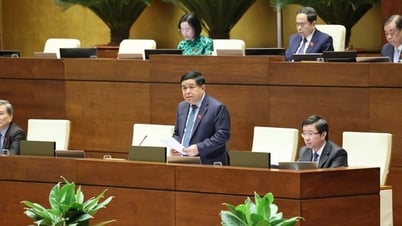

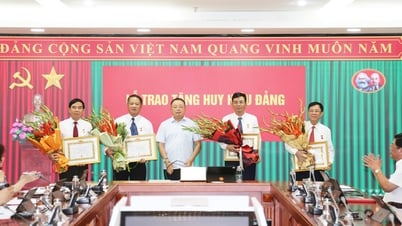

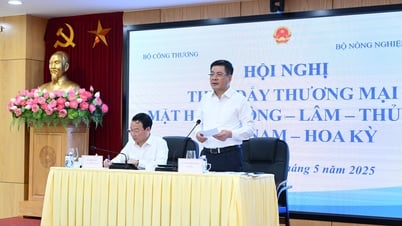


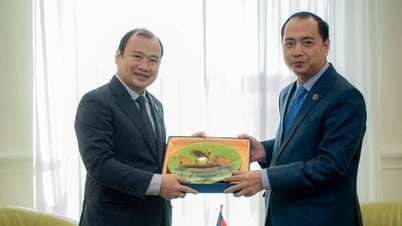


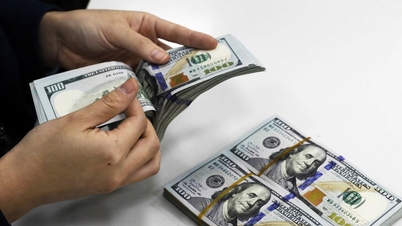
















Comment (0)